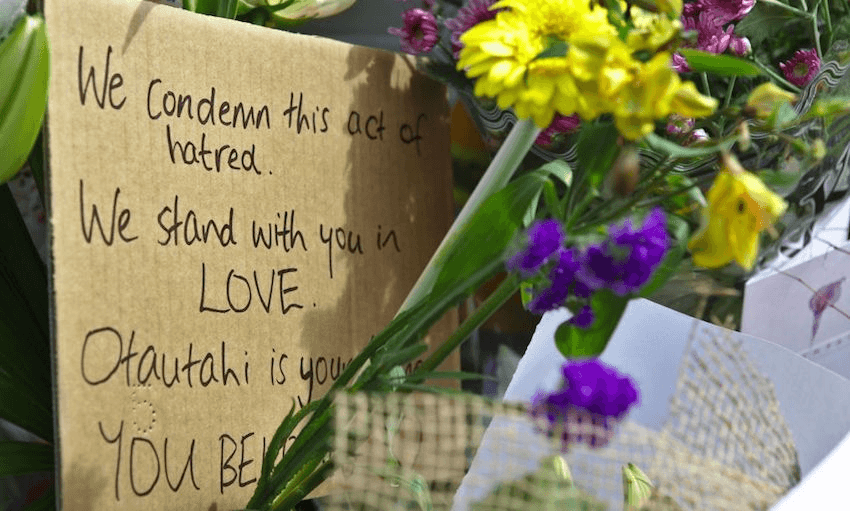In the wake of the Christchurch mosque attacks, a survivor from the 1996 Dunblane school massacre living in New Zealand has some constructive advice for the media and the public.
I live in New Zealand now, but 23 years ago this week I was an 11-year-old at primary school in Dunblane. To be more precise, I was hiding under the desk in my classroom as a gunman fired through it. I would have died were it not for the quick thinking of my teacher (thank you Mrs Gordon). Sixteen children and their teacher were killed that day; it remains the UK’s deadliest mass shooting.
I carry that day around with me, still, in small ways. I obfuscate when people ask me where I grew up. I may no longer throw myself under furniture when there’s a loud bang, but I know where all the hiding places and escape routes are in whatever building I’m in.
Shootings happen all the time, I notice. Anyone else who has been through one will notice, too. In Brazil earlier this week, and now yesterday at home. Every time comes the familiar tension and anger that this has happened again. That more people will now be thinking about whether their bathroom or wardrobe is a safer place to hide.
How shootings are reported is important and here are my suggestions of how to do so responsibly.
Don’t play audio or video from the event. Ever. Last year I was woken up by gunfire from the Parkland shooting. Thanks for that, RNZ National.
Don’t fixate on the numbers of dead and injured. It dehumanises the victims and promotes a ghoulish fascination with higher and higher death tolls. While it’s important to quantify things, don’t fixate.
Instead, focus on the victims as complete humans with lives before they became a statistic. Everyone in those buildings is a victim. Talk about their community, and if they immigrated here, about their lives before and after they came to New Zealand. Ask eyewitnesses how they are feeling, not how many bodies they saw lying around them.
Stop profiling the offenders in detail. Stop it, stop it, stop it. Don’t repeatedly use their names, don’t dig forensically into their background, don’t give them the profile they so dearly crave. For them, it validates their reasoning and promotes their ideology to others in their fringe.
While we’re at it, don’t read out their so-called manifesto on air. Don’t give any further oxygen to the hate that caused this violence.
Don’t talk about reasons or motivation for the shooting. Seeking for reason can be comforting amid the chaos, but there can be no logical reason for such unspeakable horror. Instead just call it what it is – an act of terrorism. In this case, white supremacist terrorism.
But at the same time, don’t dodge the sticky questions of ‘how this could happen here?’ Racism in our own society supported the growth of this hate, just as homophobia supported that of the Pulse Nightclub offender in Florida.
Don’t offer air time to extremists and apologists for hate in the name of balance. This is one of the few situations in life where there is a clear right and wrong.
Not sure what to say on social media or in real life? You’re not alone. What can anyone say in the face of such horror? Just remember, as with anything, you never know who’s listening. Speak kindly and don’t go over the details. Don’t share harmful material. Seek out ways to help and share those – thoughts and prayers do no one any good.
If it turns out that you’re talking to someone who’s been through this before, don’t freak out. We’re just like other people, if a bit more jumpy. Don’t just leave the conversation hanging when you find out, don’t leave an awkward silence. Ask if they want to talk about it. They might not, and they don’t owe you a blow-by-blow account of their experience.
Act with kindness and respect for those hurting, and put their experience first: a rule to live by, not just for mass shootings.
Talk about gun control. Keep talking about it. After the shooting at my school, private ownership of handguns in Britain was banned.
In short, you all have a vital job to do here. With every word and sentence think to yourself – will this help? Will this help those who are hurting now, and will it help stop this happening again?
Kia kaha to our Muslim brothers and sisters, and to Christchurch. I’ll be carrying you around in my heart.
